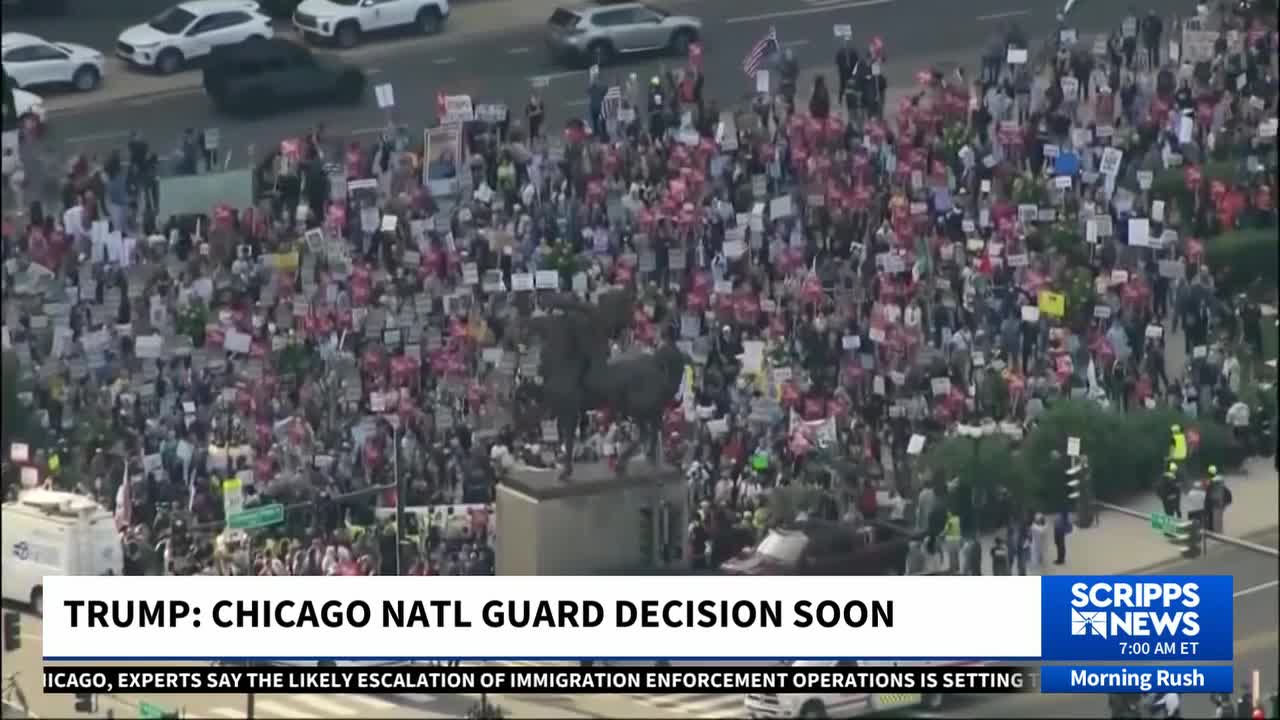President Donald Trump is again threatening to send the National Guard into Chicago, citing a weekend of deadly violence in the city.
Over the weekend, Trump posted a meme on his Truth Social platform saying Chicago is "about to find out why it's called the Department of WAR" — a reference to his executive order last week aimed at renaming the Department of Defense.

In a separate post, Trump wrote, "6 people were murdered in Chicago this weekend, 12 others were shot, and in serious condition. This would mean that over the past number of weeks, approximately 50 people were killed, and hundreds were shot, many expected to die. Governor Pritzker just stated that he doesn’t want Federal Government HELP! WHY??? What is wrong with this guy, and the 5% in Polls Mayor. I want to help the people of Chicago, not hurt them. Only the Criminals will be hurt! We can move fast and stop this madness. The City and State have not been able to do the job. People of Illinois should band together and DEMAND PROTECTION. IT IS ONLY GOING TO GET WORSE!!! ACT NOW, BEFORE IT IS TOO LATE!!!"
Illinois Gov. JB Pritzker has repeatedly opposed the idea of sending federal troops to Chicago. He has also criticized Trump’s remarks about the city’s crime.
IN CASE YOU MISSED IT | 'Unhinged': Illinois Gov. JB Pritzker responds to Trump threat to deploy National Guard to Chicago
"When did we become a country where it's okay for the U.S. president to insist on national television that a state should call him to beg for anything," Pritzker said during a news conference last week. "Especially something we don't want. Have we truly lost sense of sanity in this nation that we treat this as normal?"
Federal law gives the president authority to deploy the National Guard under certain conditions. Many Democrats argue those conditions have not been met. Pritzker has said he would take legal action, if necessary, to prevent U.S. military forces from patrolling Chicago streets.
Last month, President Trump ordered troops be deployed throughout Washington, D.C., to fight crime in the nation's capital. In the weeks since, federal officials say crime has moderately dropped. However, expanding deployments to other cities could prove more difficult legally than in Washington, which is not a state.




